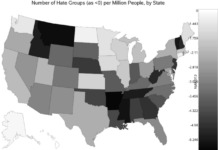The most well-publicized Supreme Court cases usually involve tough questions and split courts, with the justices split between the “conservative” and “liberal” judicial points of view. Sometimes, they are all on the same page.
On Wednesday the Court took on the issue of whether police must get a warrant before forcing a driver to submit to a blood alcohol or breath test. More importantly, they looked at whether states can criminalize a driver’s refusal to submit to such a test.
DUI stops are common all across America. So common in fact, that the criminal justice system has streamlined the process. We are now in the age of “insta-warrants,” where a cop can contact a judge at anytime of the day or night on a DUI stop, and receive a warrant within less than an hour to test a driver’s blood alcohol level.
This was at the heart of Wednesday’s arguments.
The 4th Amendment prevents unreasonable searches and seizures by the states, so the discussion centered around when an officer needs a warrant when they want to obtain a suspect’s blood alcohol level. Decades of case law points to the the answer that yes, they do, lest they violate those 4th Amendment rights. And, for once, all the SCOTUS justices seem to be in agreement:
“You’re asking for us to make it a crime to exercise what many people think of as a constitutional right!”
It just went downhill from there.
The attorneys representing the states fumbled their way through an hour of awkward pauses and incomplete answers while the justices grilled them. The justices then proceeded to tear the state’s argument apart piece by piece. Near the end of oral arguments, Justice Alito asked the attorney representing the state of Minnesota:
“Justice Sotomayor is assuming that you’re going to lose. So she wants to know what your reaction is to that.”
While it was a most embarrassing day for the states’ attorneys, don’t feel too bad for them. Poor lawyering and a lack of understanding of the importance of the Fourth Amendment did them in. The Justices now have the opportunity to put an end to a disturbing intrusion into an individual’s constitutional rights.
Featured Image by UpstateNYer (Own Work) via WikiMedia available under an Attribution-ShareAlike license.




